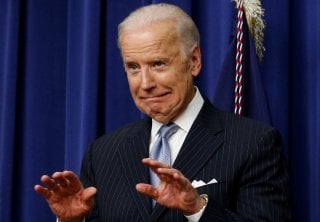Joe Biden's Inflation Problem Has Arrived
The Department of Labor reports that prices are rising. Is there reason for concern?
Here's What You Need to Remember: In the past, economists have centered their focus around the CPI, but with threats of high inflation, they’ve pivoted to watching the PPI for key indicators over what is driving up consumer prices.
The prices for products increased again last month amid inflation pressures straining the U.S. economy’s recovery.
The Labor Department reported Tuesday that its producer price index rose 0.8 percent last month, up from the 0.6 percent surge in April.
The overall price increases, which were broad-based, largely came from goods, jumping nearly 1.5 percent in May. Goods prices for beef and veal; diesel fuel; gasoline; hay, hayseeds, and oilseeds; and motor vehicles increased. Prices for services also leaped 0.6 percent in May, the fifth consecutive monthly increase.
The department’s report comes after the consumer price index rose steadily in May, marking the fastest pace of inflation in nearly thirteen years.
The CPI is measured differently than the PPI as it calculates the final prices “paid directly by households for goods and services,” according to The Wall Street Journal’s Gwynn Guilford. The PPI includes the prices paid by large companies, the government, and other third-party entities like insurers and buyers overseas. Guilford also noted that the CPI “includes taxes and user charges and the prices of imported goods and services because they are part of the total costs paid by consumers.”
“PPI matters much more than it usually does because inflation matters much more than it has for years. We haven’t had an inflationary shock like this in a decade,” Bill Adams, senior economist at PNC Financial Services Group, told the Journal. “We know we’re in the middle of an inflationary shock but what we still don’t know is how bad it is. That’s a big part of what we’re looking to these inflation data for.”
In the past, economists have centered their focus around the CPI, but with threats of high inflation, they’ve pivoted to watching the PPI for key indicators over what is driving up consumer prices.
But even after seeing May’s price data, officials with the Federal Reserve emphasize that the higher inflation will be temporary. Officials say that the increased prices correlate to sectors hardest hit by the economic turmoil caused by the coronavirus pandemic.
A two-day policy discussion with Fed officials began Tuesday and was “expected to keep the overnight benchmark interest rate near zero,” Reuters reported.
“Inflationary pressures are strong in the U.S. right now but should cool in the second half of the year,” Adams said. “The Fed is expected to reiterate tomorrow that more progress toward a recovery is needed before they slow their bond purchases.”
Rachel Bucchino is a reporter at the National Interest. Her work has appeared in The Washington Post, U.S. News & World Report and The Hill.
This article was previously published and is being reposted due to reader interest.
Image: Reuters

